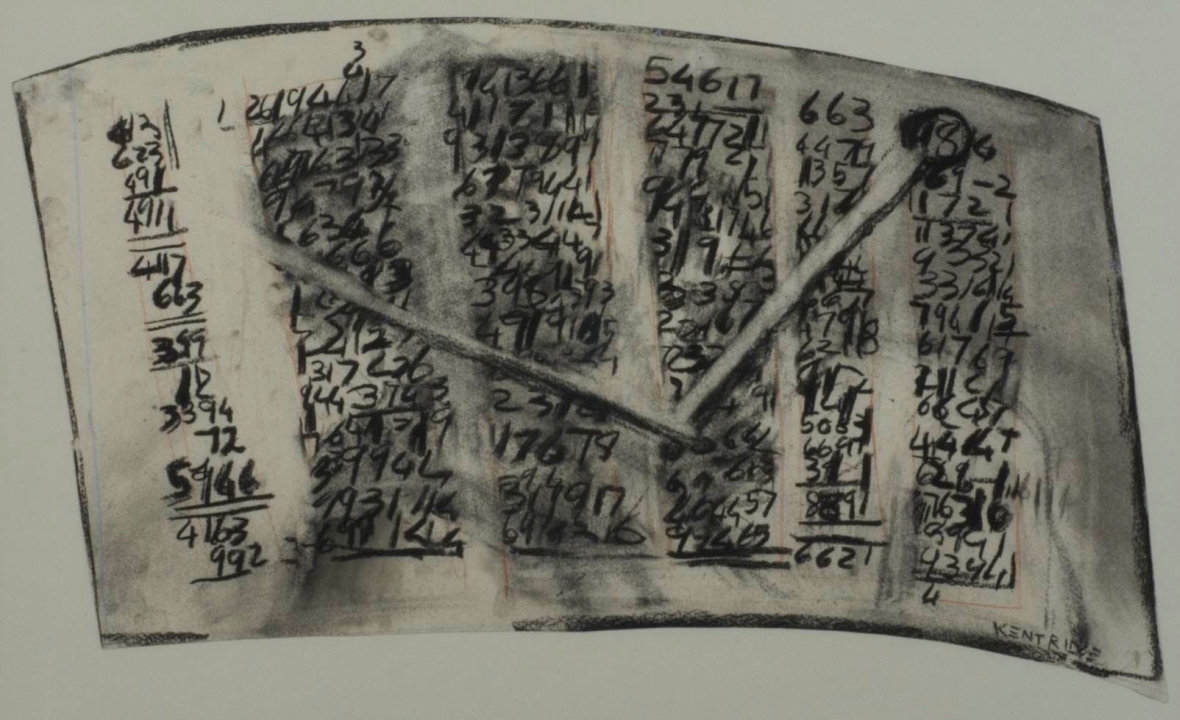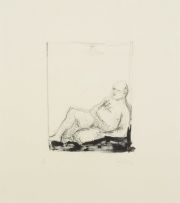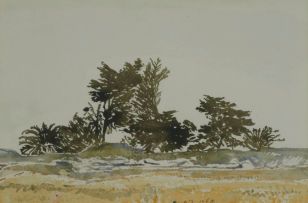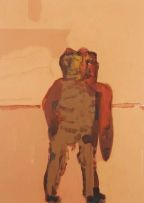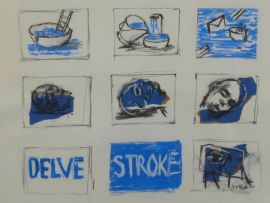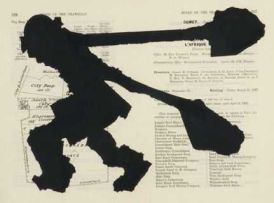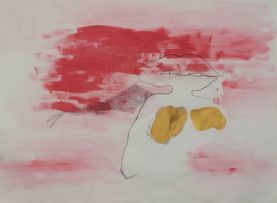Drawing from Stereoscope
William Kentridge
Incl. Buyer's Premium & VAT
About this Item
signed
Notes
William Kentridge explains that Stereoscope asks "how to maintain a sense of both contradictory and complementary parallel parts of oneself. Since James Joyce, there has always been in modernist writing the notion of a stream of consciousness - floating connections rather than a programmed, clear progression. What I'm interested in," he explains, "is a kind of multi-layered highway of consciousness, where one lane has one thought but driving up behind and overtaking it is a completely different thought".i
In light of such statements, it is futile to seek fixed meanings in Kentridge's drawings. Columns of figures may allude to accounting but also perhaps to counting the costs while diagonal lines resembling the hands of a clock or a pair of knitting needles suggest the passing of time.
Of the film for which this drawing was made, Lynne Cooke maintains that "although Kentridge had defined the terms of his aesthetic broadly by 1992, they seem nowhere more poignantly realized than in Stereoscope".ii
Delve and Stroke resembles a film's storyboard in which the artist has rapidly sketched ideas for drawings for animation. Water, a central metaphor in Stereoscope, suggests life, tears and floods. Heads that appear to be asleep or dreaming evoke Kentridge's monumental African heads. The lower register contains words rich in associative references. Delve suggests digging the ground as well as probing the past. While stroke may imply caresses, it also refers directly to the bizarrely compelling notion of creating electricity by stroking dry, black cats, as advocated by the Russian poet and playwright, Vladimir Mayakovsky - the likely source for the cat in Kentridge's films.
i. Carolyn Christov-Bakargiev, 'Interview: Carolyn Christov-Bakargiev in conversation with William Kentridge' in Cameron, C., Christov-Bakargiev, C. and Coetzee, J. M., William Kentridge, London: Phaidon, 1999, p 26.
ii. Lynne Cooke, 'Mundus Inversus, Mundus Perversus' in Benezra, N. Boris, S. and Cameron, D. William Kentridge, MCA, Chicago, 2001, p 52.
